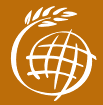Strengthening the Role of GFAR in Promoting Forward Thinking in AR4D
The GCARD Roadmap for transforming agricultural research for development (AR4D) around the world emphasizes the need for "collective focus on key priorities, as determined and shaped by science and society." The global AR4D community has decided, through the GCARD process, to foster collective foresight action to improve the prioritization of agricultural research and create more relevant and effective innovation systems that are embedded in the needs of the societies that they serve. The GCARD Roadmap also recognizes that "The need for improved foresight must be addressed by mobilizing expert analyses within countries to analyze specific themes of concern and bringing together, via GFAR and the Regional Fora and on a coherent and regular basis, the diverse national and international initiatives to examine relevant development scenarios through different lenses, learning from the outcomes of the different models and perspectives employed. Alongside this, wide stakeholder consultation will be mobilized through national and regional Fora, to ‘groundtruth’ the realities and impacts of trends among poor rural communities."
GFAR advocates for improved foresight, supported by forward-looking, anticipatory research and analyses that integrates the diverse views of farmers and other stakeholders on specific opportunities and problems facing them. This is demanded by the GCARD Roadmap with the aim of generating policy-informing, but not policy-prescriptive, science-based options by exploring emerging trends and issues beyond the presently perceived boundaries of either their possible consequences or the technical and policy options for addressing them and by highlighting the benefits and trade-offs among the potential responses.
There are many institutions involved in forward thinking and GFAR encourages this diversity but the utility and impact of their work has been limited by their isolation from one another. To optimize the utility of foresight GFAR has perceived the need for three distinct but interrelated sets of activities, i. establishing a platform that will enable all players in forward thinking to interact to share their ideas and findings and thereby advance the foresight paradigm; ii. establishing a facility that will enable developing regions to engage proactively in foresight and build human capacity in critical emerging issues, and; iii. creating a space for two-way interaction between foresight analysts and policy makers. This is essential on the one hand to focus forward thinking on relevant issues and on the other to raise the awareness of policy makers to the utility of foresight in their policy making. These three activities will be interconnected to form the GFAR Global Foresight Hub (see Figure 1)
The establishment of a Global Foresight Hub by GFAR which will link international, regional and national levels is consistent with GCARD 1 recommendations, and legitimate given GFAR’s multi-stakeholder nature. It will enable GFAR to fulfill its mandate as a catalyzing mechanism by linking CGIAR centres, Advanced Research institutes (ARIs), NARS, international policy bodies and initiatives (e.g. the Commission on Sustainable Agriculture and Climate Change) with national and regional organization including Civil Society Organizations.
The Global Foresight Hub would support and integrate the following three sets of activities:
1. Stimulating forward thinking research debates in agriculture and rural development, taking into account competing non-agricultural demands on human and natural resources, so as to identify common findings, controversies, and limits to the current knowledge with regards to future stakes. For this, GFAR will provide a mechanism, under the form an annual "global AR4D Forward Thinking Platform (AR4D-FTP)" which will open room for those engaged in strategic foresight to share results, compare methods, and discuss controversies arising from their field experiences. Every second year it will be part of the GCARD meeting enabling persons engaged in foresight activities around the world to meet to agree on issues where collective foresight actions can bring particular value, and to share perspectives and learning generated from each region.
2. Connecting Science and Society so as to facilitate dialogue between scientists, policy makers and civil society, letting the voice of the final users, especially small farmers, be incorporated in societal choices engaging future research. GFAR will help facilitate regular agriculture and rural development foresight by convening "Policy Dialogue Platforms (PDP)" for implementing agencies concerned at international, regional and national levels where the results of the AR4D-FTP will be debated by representatives of civil society and policy makers who will be informed about the implications of their choices.
3. Building capacity of all stakeholders to be able to think ahead when collectively adjusting the content of AR4D to societal needs. GFAR will contribute to the collective capacity building, region by region, starting with Africa, by supporting a "Global Foresight Academy (GFA)" that will develop the skills and capabilities of young professionals and support foresight activities on high-priority issues across GFAR constituencies.
These three elements compose the core of a potential work plan for GFAR in relation to its duty to inform the first of the six strategic elements of the GCARD1 Roadmap: "Inclusively defines key AR4D priorities and actions, driven by evolving national, regional and global development."
Contributed by:
Robin Bourgeois, Senior Foresight and Development Policies Expert, GFAR Secretariat,
Ralph von Kaufmann, Technical Coordinator, FARA,
Click here for a full PDF of this document>

